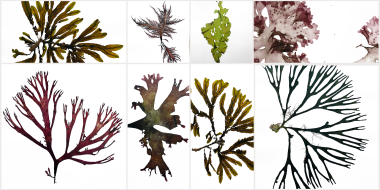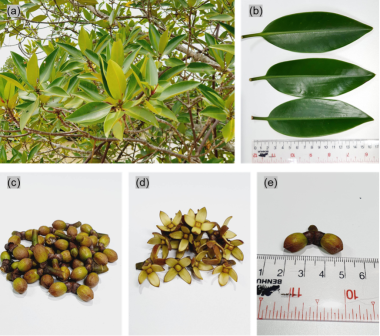Speakers
Keynote Speakers

Prof. Anake Kijjoa
Head of Chemistry Department of the Biomedical Sciences Institute Abel Salazar (ICBAS) of the University of Porto, Portugal
Biography

Prof. Wei Wang
Dean, School of Pharmacy, Hunan University of Chinese Medicine, Changsha, Hunan, China
Biography



Prof. Manuel Coimbra
QOPNA & LAQV/REQUIMTE, Department of Chemistry, University of Aveiro, Portugal
Biography

Prof. Ramesh K. Goyal
Advisor to IIM-SLS University in Gujarat, Ex-Vice Chancellor, Delhi Pharmaceutical Sciences & University &The Maharaja Sayajirao University of Baroda, India
Invited Speakers
Prof. Ana Paula Girol, Graduate and Research Pro-Rector of Padre Albino University Center UNIFIPA, SP, Brazil
Prof. Anand Gaurav, Department of Pharmaceutical Sciences, School of Health Sciences & Technology, UPES, Dehradun, Uttarakhand, India
Prof. Andreia Moreno, Pro-Rector, Coordinator of Pharmacy Course, Padre Albino University Center UNIFIPA, SP, Brazil
Dr. Ajoy Kumar Verma, Senior consultant medical specialist, National Reference Laboratory & Department of Microbiology, Centre of Excellence (WHO), National Institute of Tuberculosis & Respiratory Diseases, New Delhi, India
Prof. Chandramathi Samudi, Department of Medical Microbiology, Faculty of Medicine, University
Prof. Cristina Salibay, De La Salle University-Dasmariñas, Cavite, Philippines
Prof. Diana Pinto, LAQV-REQUIMTE, Department of Chemistry, University of Aveiro, Portugal
Dr. Jioty Kayesth, Deshbandhu College, Infectious Diseases Detection and Surveillance (IDDS), ICF/USAID, India
Prof. Kamal Kumar Gupta Vice Principal Deshbandu College Delhi University, New Delhi, India
Prof. Luís Mendonça de Carvalho, Director of the Botanical Museum & UNESCO Chair in Ethnobotany and Safeguarding Heritage of Plant Origin, Polytechnic Institute of Beja, Portugal
Prof. DR. M. Raza Shah H.E.J. Research Institute of Chemistry, International Center for Chemical and Biological Sciences (ICCBS), University of Karachi, Pakistan
Prof. Mohammed Nawaz, Department of Nano-Medicine Research, Co-ordinator IRMC-Mawhiba Program, Institute for Research and Medical Consultations (IRMC), Imam Abdulrahman Bin Faisal University, Dammam, KSA, Saudi Arabia
Dr. Prasoon Kumar Gupta, Natural Product Chemistry Division, CSIR – Indian Institute of Integrative Medicine, Canal Road, Jammu – 180001, India
Dr. Shanmuga S. Sundar, Department of Biotechnology, Aarupadai Veedu Institute of Technology, Vinayaka Mission’s ResearchFoundation, Paiyanoor, Chennai, Tamil Nadu 603104, India
Prof. Sílvia M. Rocha, LAQV-REQUIMTE, Department of Chemistry, University of Aveiro, Portugal
Prof. Sunil Kayesth, Department of Zoology, Deshbandhu College, India
Prof. Veeranoot Nissapatorn, School of Allied Health Sciences, World Union for Herbal Drug Discovery (WUHeDD), Walailak University, Thailand
Prof. Zélia Anastácio, Institute of Education of the University of Minho, Portugal
ICNPHH-2024 Short Courses / Explore, Learn, and Meet experts
CNPHH-2024 offers a unique opportunity for students to develop their skills and knowledge through specialized mini-courses. Meet up close with renowned international experts and delve into cutting-edge topics in different areas. Each short-course will last approximately 1h:30m.
Do not miss this opportunity! Places are limited. Sign up now and guarantee your place in our mini-courses.
1 - The role of herbaria in phytochemical research and how are they made (Theorical-practical course )
Number of vacancies: 15
Place: Herbarium of the University of Aveiro (Department of Biology)
Date: 19 september, 2024
Language: Portuguese & English
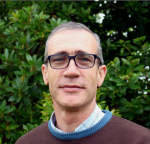
2 - Plant based strategy to eliminate tuberculosis vis -a – vis its effectiveness
In many parts of the world an effective plant extracts are being used to treat tuberculosis especially drug resistance tuberculosis where the conventional drugs and toxic and have long course of treatment. This presentation undermines the importance of medicinal plant their important metabolite which work to kill the intracellular mycobacterium tuberculosis. In the current presentation the various medicinal plants tried by WHO as adjunctive therapy has been discussed. In this study some of the plant discussed which are used as immunomodulator and can be used as supplement with currently used anti-TB drugs. Natural products derived from medicinal plants are the new and emerging alternative of conventional treatment. The new plant metabolites will definitely play a critical role in controlling the tuberculosis and help in ending the Tb from grass root level.
Coordinator: Dr. Ajoy Kumar Verma
Collaborator: Dr. Jyoti Kayesth
Number of vacancies: 30
Place: University of Aveiro, Aveiro, Portugal
Language: English
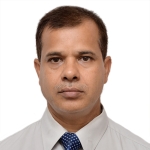
Dr. Ajoy Kumar Verma
Department of Microbiology, National Institute of TB & RD Sri Aurobindo Marg, 2Deshbandhu College, New Delhi, India
Biography
3 - Diversity of Portuguese halophytes with nutraceutical/medicinal potential (Practical course)
Number of vacancies: 15
Place: Labs 26.1.12 DBio
Language: Portuguese & English
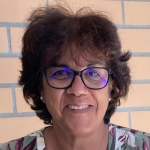
Prof . Helena Silva
Department of Biology, University of Aveiro, Portugal
Diversity of Portuguese halophytes with nutraceutical/medicinal potential (Practical course)
Biography4 - Introduction to EEG and AI-Based Analysis
Collaborator: Júlia Ramos
Description:
This 1.5-hour workshop provides a practical introduction to recording EEG (electroencephalogram) data and using AI (artificial intelligence) for its analysis. The course is designed for those interested in the basics of EEG technology and its analysis using Artificial Intelligence.
Participants will begin with a brief introduction to EEG fundamentals, covering the setup and recording of brainwave data. This will include: how to place electrodes correctly, acquire signals, and monitor neural activity in real time.
The course will then move on to the application of AI in analyzing EEG data. Participants will be introduced to machine learning algorithms and techniques for processing and interpreting brainwave patterns. Through hands-on exercises, participants will use AI tools to analyze the collected data, identify neural signatures, and understand cognitive states.
By the end of the workshop, participants will have a basic understanding of how AI can be used to analyze EEG data. This course is suitable for beginners and does not require prior experience in EEG or AI. It is expected that the course will allow participants to explore the intersection of neuroscience and AI in a practical and straightforward manner.
Number of vacancies: 15
Place: Department of Medical Sciences
Department of Medical Sciences, Ibimed, University of Aveiro, Portugal Language: English
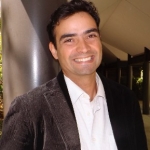
Prof. Miguel Pais Vieira
IBIMED, Department of Medical Sciences, University of Aveiro, Portugal
Biography
5 - Integrative Omics Approaches: Unveiling Biological Insights for Therapeutic Innovation
Collaborator: Prof. Rui Vitorino
Description:
In today's rapidly evolving scientific landscape, integrative approaches to omics data are critical to unlocking complex biological insights. By combining text mining and review of omics data collected in databases using bioinformatics tools, researchers can uncover hidden molecular patterns and relationships that expand knowledge of pathogenesis and drive innovation in therapeutic interventions. We hope this workshop will equip you with valuable skills and knowledge to apply integrative methods in your research endeavors. Let us explore together the exciting possibilities at the intersection of text mining and omics data.
Aim of the workshop
The main goal of this workshop is to provide you with a comprehensive understanding of how integrative tools can improve scientific research impacting human health. We will explore the intersection of text mining, data collection from databases and their analysis with bioinformatics to uncover the biological processes underlying a pathophysiological condition.
Agenda at a glance
Our session combines hands-on exercises and interactive discussions. We will start with an introduction to text mining tools and their relevance to the life sciences. We will then discuss integrative approaches, in particular how combining text mining with natural product studies can provide important insights. Participants will apply these concepts in a hands-on exercise and engage in a group activity on mapping interactions between biological entities. The workshop will conclude with a discussion on emerging trends in integrative biosciences and a Q&A session.
Number of vacancies: 35
Place: Department of Medical Sciences, University of Aveiro Language: English
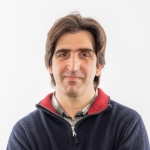
Prof. Rui Vitorino
IBIMED, Department of Medical Sciences, and LAQV-REQUIMTE, Department of Chemistry, University of Aveiro, Portugal
Biography

Prof. Rita Ferreira
IBIMED, Department of Medical Sciences, and LAQV-REQUIMTE, Department of Chemistry, University of Aveiro, Portugal
Biography
6 - Nuclear Magnetic Resonance (NMR) Spectroscopy as a Tool for Natural Products Structural Characterization
Collaborator: Prof. Vera Silva
Description:
Description: This 1.5-hour short course aims to cover the fundamental practical aspects of extracting and isolating plant metabolites, especially flavonoid-type compounds. It focuses on their structural characterization using 1D and 2D nuclear magnetic resonance (NMR) spectroscopy, a key tool for unequivocally identifying the structure of natural products.
The course is designed for those interested in the basics of NMR spectroscopy. It will begin with a brief introduction to the whole process until the isolation of a metabolite, using a case study. Then, theoretical and practical aspects of liquid NMR spectroscopy will be explained, from preparing the samples for analysis to interpreting the data.
This course is suitable for beginners and does not require prior experience in NMR spectroscopy. The course is expected to allow participants to learn the basic concepts and practical aspects of NMR spectroscopy. They will have the opportunity to analyze some NMR spectra to explore the potential of this tool in the characterization of natural products.
Number of vacancies: 15
Place: Department of Chemistry, University of Aveiro Language: Portuguese & English
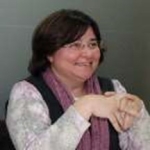
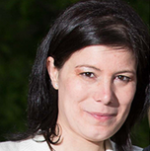
Round table
Women in Science on the Forefront of Natural Products for Health
Prof. Sónia Ventura, Department of Chemistry, University of Aveiro, Portugal
Prof. Ariane Zamoner Pacheco de Souza, Department of Biochemistry, Universidade Federal de Santa Catarina, LaBioSignal - Laboratory of Biochemistry and Cell Signal Florianopolis, SC, Brazil
Dr. Hazel Anne Tabo, College of Science and Computer Studies, DE LA SALLE UNIVERSITY-DASMARINAS, Cavite, Philippines
Prof. Sherine Khattab, University of Alexandria, Natural Products Research Network for Eastern and Central Africa (NAPRECA), Egypt
Prof. Subha Bhassu, Institute of Biological Sciences, Faculty of Science, University of Malaya, Kuala Lumpur, Federal Territory of Kuala Lumpur, Malaysia
Dr. Ragini Bodade - Savitribai Phule Pune University, India
Dr. Roma Pandey, IILM University, India
Dr. Geeta Devi Boris, University of Allahabad, India
Bioinspired Artwork in Competition
As part of the 4th ICNPHH-2024, Unifipa (Experimental and Clinical Research Center - CEPEC), Brazil, Co-host Institution, promotes an artwork competition.
Natural products, origin of new drug discoveries to promote health and treat several human diseases, are a rich source of inspiration for artists and scientific illustrators. This contest aims to encourage artistic and cultural production and value of natural health products through visual arts (e.g. photography, drawing, painting, sculpture, crafts).
ICNPHH-2024 registrants are invited to submit their ARTWORKS for this competition by 15 August 2024.
THEME: Natural products-Inspired Art for Health
The jury will award prizes to the first three classified.
Explore your artistic potential by communicating science through art!

